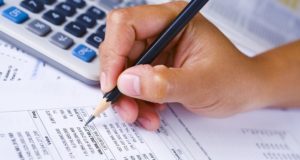 The mainstream media is rejoicing in the gains the stock market has experienced this year and have joined the government bureaucrats in proclaiming that the economic crisis is largely past us. However, the analysts who accurately predicted the debt crisis to begin with have observed that we are more than likely poised to enter a second, or “double dip” recession.
The mainstream media is rejoicing in the gains the stock market has experienced this year and have joined the government bureaucrats in proclaiming that the economic crisis is largely past us. However, the analysts who accurately predicted the debt crisis to begin with have observed that we are more than likely poised to enter a second, or “double dip” recession.
The “double dip” is merely a reference to what a recession looks like on a chart, so don’t let all the terminology confuse you. What is being discussed is merely a worsening of the economic condition, which is generally seen as having improved in the last year.
The reasons for the likelihood of another recession are many. First, after making some gains, residential real estate prices appear to be falling again. Far more significant though are the growing declines in commercial real estate values. After all, while people always need a place to live, businesses can simply collapse, and with that collapse goes the demand for office space.
The market itself has priced in a lot of good news, but there really isn’t much. Unemployment (the official figure, that is) is about 10%, while the “real” unemployment is almost twice that. Remember that the government doesn’t count people who: a) have been forced into retirement but want to continue working, b) those who have given up looking for a job, or c) those that lost a full-time job and have taken some sort of part-time work to make ends meet.
Businesses themselves still have poor earnings, and there’s no end in sight. Consumers are holding onto what little cash they have, prudently not spending it on new cars, new electronics and all the rest of the profligate spending that drove the previous booms. As a result, businesses are reluctant to invest in building new factories, hiring more employees, or even growing inventory. As a result, earnings just aren’t there.
Recently two new serious threats to our economy have emerged. The first is the inevitable result of all the money printing we’ve done in the last two years. Few people realize that through the stimulus bills, bail outs, TARP funds and liquidity measures taken by the FED, we have more than doubled the monetary base. Simply put, that means there is twice as much (fiat) money out there floating around, and if the FED doesn’t raise interest rates, all that money could trigger massive inflation.
However, raising rates makes it more expensive for consumers and businesses to borrow money to invest in real estate, expand businesses, buy houses or cars, and so higher rates means less growth. Further complicating the problem is that the FED has already taken this unprecedented measure, so if another recession comes along, what can they possibly do that they’ve not already done?
A friend of mine plays Blackjack and relates that one of his favorite strategies is to “double down” whenever he loses because the odds are that, in a basically 50-50 game, a losing hand will be followed by a winning hand, just as it is when you’re flipping a quarter. So he doubles down, which often results in a win. That’s what the FED does when things go badly; they print money.
But the problem in Blackjack, and more to the point, in real life, is that sometimes you can flip a quarter and get tails 10 times in a row. It’s not likely, but it can happen. Try it yourself and see what kind of a streak you can put together.
So if you “double down” in Blackjack, it’s possible that you’ll just dig your hole that much deeper, and the FED is risking the same thing.
The second new threat we’re facing is the risk of sovereign default. When governments borrow money, the people lending to them have faith that the governments will be able to raise the money necessary to pay the interest and repay the principal. Generally governments are considered the safest bets because they have the force of law to confiscate wealth, more power than any single corporation or individual to raise money when needed.

However, the riots and unrest in Greece have shown that citizens can resist, and the fear that no amount of money will cure Greece’s problems has people rattled. In fact, over the course of just a few days the emergency loans for Greece grew from $65 billion to $150 billion to almost $1 trillion! It’s hard to imagine that kind of money, but doubly so for a country with an economy smaller than North Carolina or Georgia! What happens when someone big (the UK or Japan) gets into trouble?
These nations who are in trouble need the same treatment an addict needs—to dry out. They need to admit their problems, abandon the practices that got them there, go through a painful process of “cleansing”, and start over again. But today’s men want “all gain, no pain”, so that’s not an option. Kind of like our own big corporations who take profits in good times and government money in bad times. I’d like to lose some weight without working out or changing my diet, either.
Here at home we are facing the same risks—whether the “real” crisis will hit in 2013 (as many people are now projecting) or whether we can delay it yet again by remaining “too big to fail” and “best of the worst.” The solutions are easy, of course; we need only to cut taxes so people have more money to save, invest and spend, and to cut government so our deficit disappears, and along with it, the need to take on ever more debt. But that won’t happen either, for the same reason most addicts can’t clean up.
So next time you’re feeling good about the headlines, remind yourself about these mind games the elite play to convince the sheeple things are better than they are.
 Off The Grid News Better Ideas For Off The Grid Living
Off The Grid News Better Ideas For Off The Grid Living



